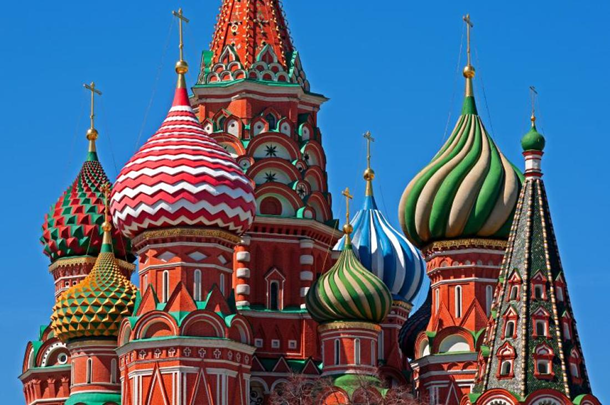The Department of Russian and Slavic Studies at the University of Arizona is introducing two new short-term summer study-abroad programs in Moscow, Russia.
One of the new programs is titled “Russian Theatre and Performance” and will feature two different classes for students to choose from. RSSS 415/515: The History of Russian Theatre focuses on the history of Russian performance and will be taught by Moscow Art Theatre School faculty and Colleen Lucey, a professor in the Department of Russian and Slavic Studies. TAR 496A/596A: Russian Theatre and Performance (Stanislavsky Acting Technique) focuses on intensive acting, movement and voice training and will be taught by MATS faculty and Greg Pierotti, an assistant professor at the School of Theatre, Film & Television. It will take place from May 10 to May 27.
RELATED: Q&A: Religious studies professor selected for prestigious program
The other program is called “War & Peace Through Russian Eyes,” which will cover how the experience of WWII in Russia is conveyed through cultural landmarks and art. This course is taught by Benjamin Jens, a professor for the Department of Russian and Slavic Studies, and goes from May 12 to June 1.
The deadline to apply for both programs is Feb. 25.
Since the programs are only three weeks long, they provide a more convenient and cheap way to study abroad for students who cannot afford or do not have time for a full semester or summer. Students can also do a short-term program as an extension to a regular summer program.
“We really want to make it as easy as possible for people to do this program, because we believe in it very passionately,” Pierotti said. “I’m proud of the work we’ve done on it and what we’ve put together for the students, and I think it’s going to be amazing.”
Usually, Russian and Slavic Studies study-abroad programs are focused on language, but students do not need to have any prior knowledge of Russian to take this trip. Some lectures for Russian Theatre and Performance will be given by employees at the Moscow Art Theatre School in Russian, but all will be translated into English.
A Russian major is not required, and undergraduates, graduate students and non-UA students can participate. Students who want to do the theater program do not need to have acting experience; it is available for anyone who wants to have intensive and immersive training.
RELATED: Astronomer to Race Across the West
The theater program will consist of two weeks in Moscow and one week of online learning. In addition to being in the classroom, students will have the opportunity to go on excursions that are relevant to their learning experience. Those in the theater program will attend multiple theater performances and be able to see what they are learning up close and in person to help them connect further to the material.
“Going to Russia shows you how Russians value theater as an experience, because they go to the theater looking for something more than just entertainment,” Lucey said. “They go to see how artists make sense of the big question concerning human life and political life, as well.”
Students will also visit the estate of Anton Chekhov, an acclaimed playwright who transformed realist drama. He was also a doctor and saw patients during the day and wrote his plays at night. Other trips include going to the Red Square where Vladimir Lenin was buried, visiting downtown Moscow and a boat tour of Moscow, Lucey said.
Those in the “War & Peace Through Russian Eyes” program will be visiting the Museum of the Great Patriotic War, which has many exhibits dedicated to Russia’s fight in WWII. Students will also visit the Borodino battle site and a Cold War bunker museum as well as the Red Square and art galleries, according to Jens.
Study abroad can give students more experiences than a traditional classroom by allowing them to experience different cultures and customs, Lucey explained. Russia is in American news quite frequently, but actually visiting there can provide a new outlook on the people there and how they live their daily lives.
“It’s nice to have an experience of Russian life and how they’re viewing us from abroad,” Jens said. “Just to find those points of connection between the two countries can really help build long-term dialogue.”
Students who are interested in applying can go to the Russian and Slavic Studies’ website and click on study abroad. If finances are a problem, students can apply for scholarships offered by study abroad. Students in the theater program are eligible to apply for the Medici Scholars Program, and there are also scholarships specifically for Russian students.
Follow Maddie Viceconte on Twitter









